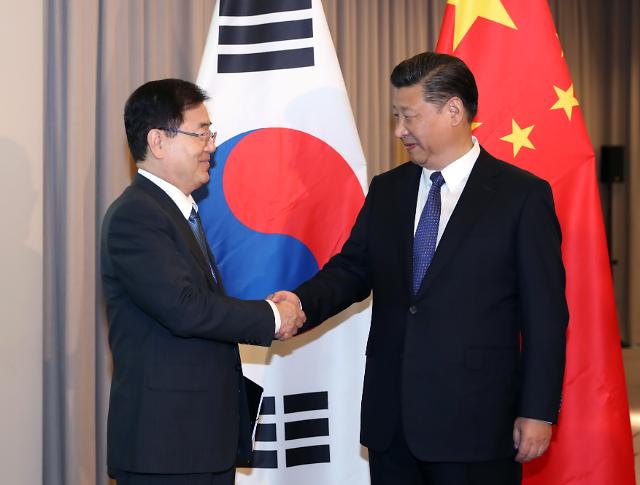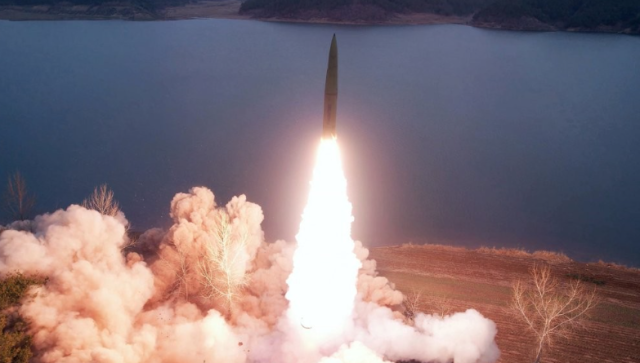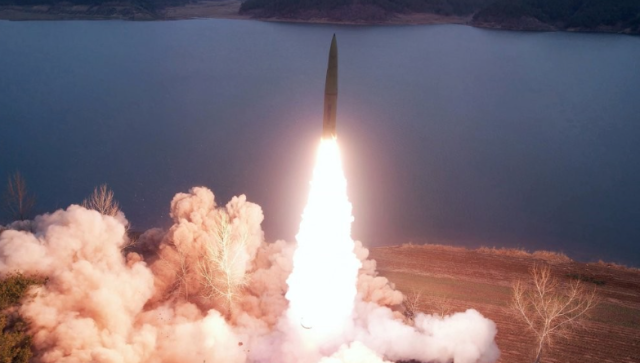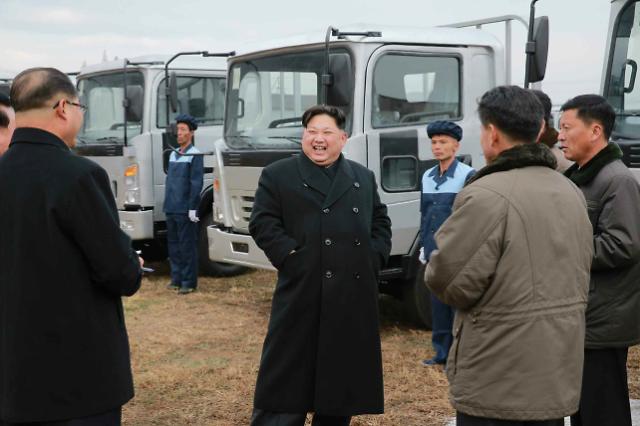
[Yonhap News Photo]
In the run-up to the G-20 summit, South Korean and Chinese leaders appeared to have agreed on a two-track policy of engagement and pressure as US President Donald Trump gets tough with North Kora's nuclear and missile development.
At their talks in Germany, South Korean President Moon Jae-in and Chinese President Xi Jinping said the development of North Korea's intercontinental ballistic missile (ICBM) should not be allowed, but they agreed to push for a peaceful solution based on sanctions and pressure, according to the president's office.
The United States, however, took a hard line following North Korea's surprise ICBM launch this week and rejected a joint "freeze-for-freeze" proposal from Xi and Russian President Vladimir Putin that US and South Korean troops suspend joint military exercises in exchange for North Korea halting nuclear and missile tests.
"There's no equivalency between the United States and its activities and actions that it undertakes with its allies, including South Korea and also Japan. These are something that are lawful," said US State Department spokesperson Heather Nauert.
Trump expressed his stong position against Pyongyang saying he's thinking about "some pretty severe things". "I have some pretty severe things that we're thinking about. That doesn't mean we're going to do them. I don't draw red lines," he said after talks with Polish President Andrzej Duda,
The United States started casting doubt over China's role. China is North Korea's last-remaining major ally and economic lifeline but it has been reluctant to push the regime too hard.
In a commentary published by the Washington Post, Victor Cha, a former White House director for Asia, and Jake Sullivan, national security adviser to former Vice President Joe Biden, said Washington should use the China card differently.
"We should tell China that it has to pay to play. The basic trade would be Chinese disbursements to Pyongyang, as well as security assurances, in return for constraints on North Korea’s program. China would be paying not just for North Korean coal, but for North Korean compliance," they said.
They said that if China refuses to do, the United States would be better positioned to pursue widespread secondary sanctions against Chinese firms doing business with North Korea.
Lim Chang-won = cwlim34@ajunews.com




